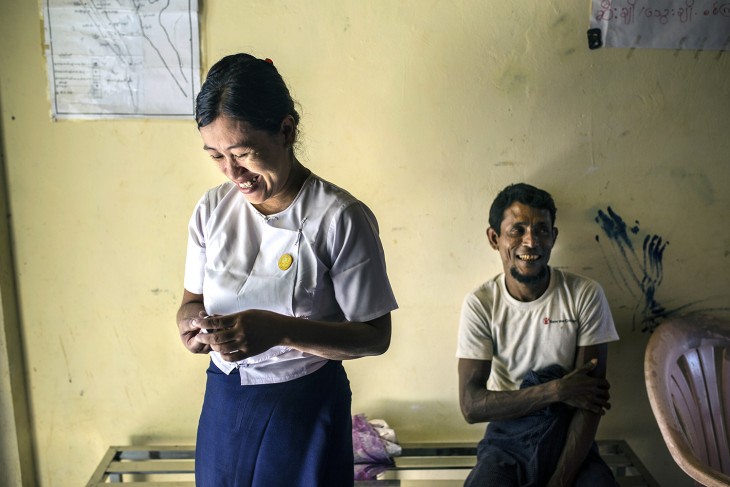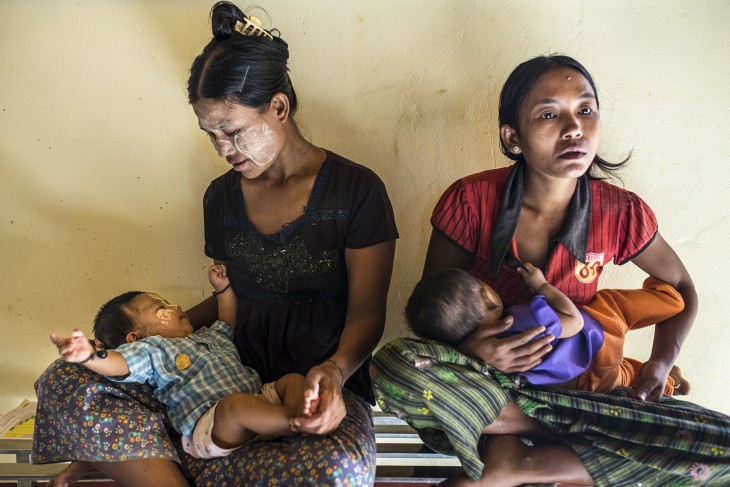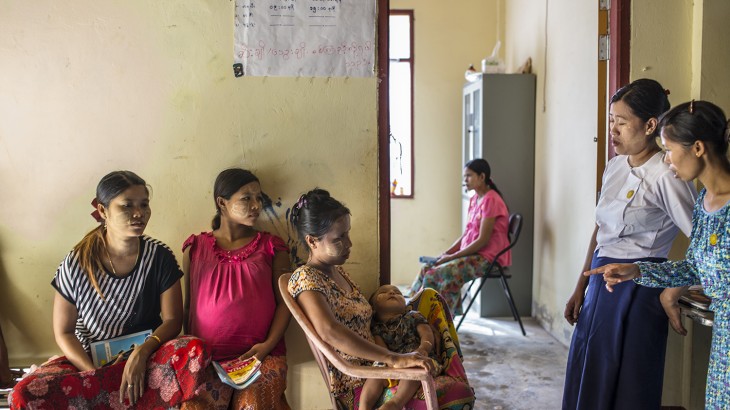In a village in central Rakhine, a clinic is used by Rakhine and Muslim communities alike. It serves as an example of peaceful coexistence for the rest of the state.
Come Monday morning, the Sin Tet Maw clinic rings with the laughter of women. The crowd nestles together on the benches along the walls. Some lean back to ease the weight of their pregnant bellies while others lean forward over infants, who are sleeping cradled amidst their crossed legs. Some are Rakhine and some are Muslim.
Despite the outbreak of violence in 2012, which bitterly divided the two communities, all of them sit peacefully awaiting their checkups. “Everyone is welcome here,” says San Mya Yee, the health visitor and head midwife. “We treat them all equally. We give them good care.”
Making them feel safe and welcome
Elegant in her long, navy blue skirt and a crisp white blouse, San Mya Yee oversees a health facility where members of all communities can receive treatment. Originally from the state capital of Rakhine, Sittwe, San Mya Yee has been head midwife in Sin Tet Maw for ten years now. She moves easily among her patients, smiling and sharing a joke. Her motherly warmth makes everyone feel safe and welcome. In addition to a special focus on maternal and infant health, the clinic also provides primary health-care services to the wider community.

San Mya Yee, the head midwife. ©ICRC, Minzayar Oo
Nar Wa Eishar, 40, arrives with his teenage daughter Taw Mi Nar Khar Thu. She is weak and she has not been eating. San Mya Yee greets them with a reassuring smile and ushers the girl into the examining room. “I bring my family here regularly,” says Nar Wa Eishar. “They take good care of everyone. When I see another Muslim lady or man who is sick, I tell them to come here for help.”
Ma Bu Chay, 28, shares the same level of trust as Nar Wa Eishar for the clinic. She had her first three children at home, but decided to deliver the fourth at the clinic. “When I came and met the head midwife, and saw all the equipment, I realized that this was a safe place to have my baby,” she says, hugging her now seven-month-old daughter.

Women with their children at the Sin Tet Maw clinic. ©ICRC, Minzayar Oo
Encouraging communities to connect
And what does Ma Bu Chay think about sharing the clinic with Muslim women which, in some parts of Rakhine state, would not be possible at the moment?
“It’s no problem,” she says. “We sit together. They also deliver their babies here. It’s fine.” “Today in Rakhine, we need to find ways to encourage communities to connect. The health clinic is a natural point of connection between these two communities that are still recovering from violence,” says Haezin Nay Lin, the medical field officer for the ICRC in Rakhine.
In 2016, the ICRC entered into a two-year partnership with the Rakhine Ministry of Health and Sports to support the maternal health-care services in Pauk Taw and five other townships. The ICRC supports existing health-care facilities with the aim of building the foundation for a well-functioning and accessible health-care system.


